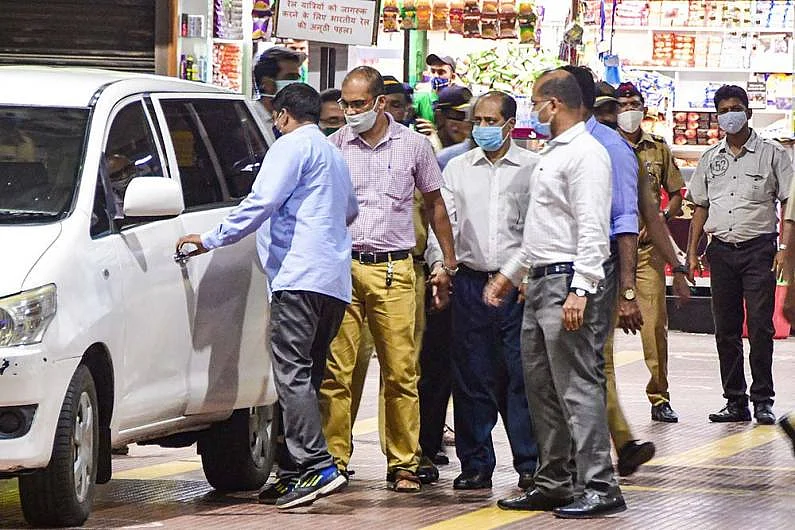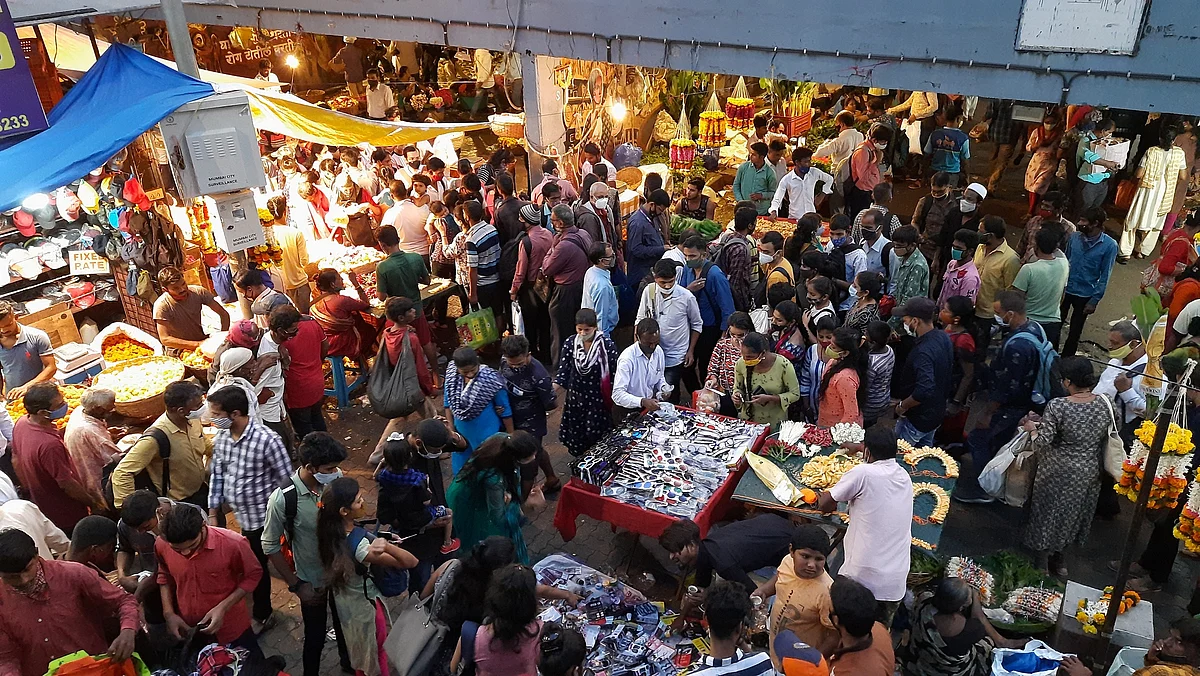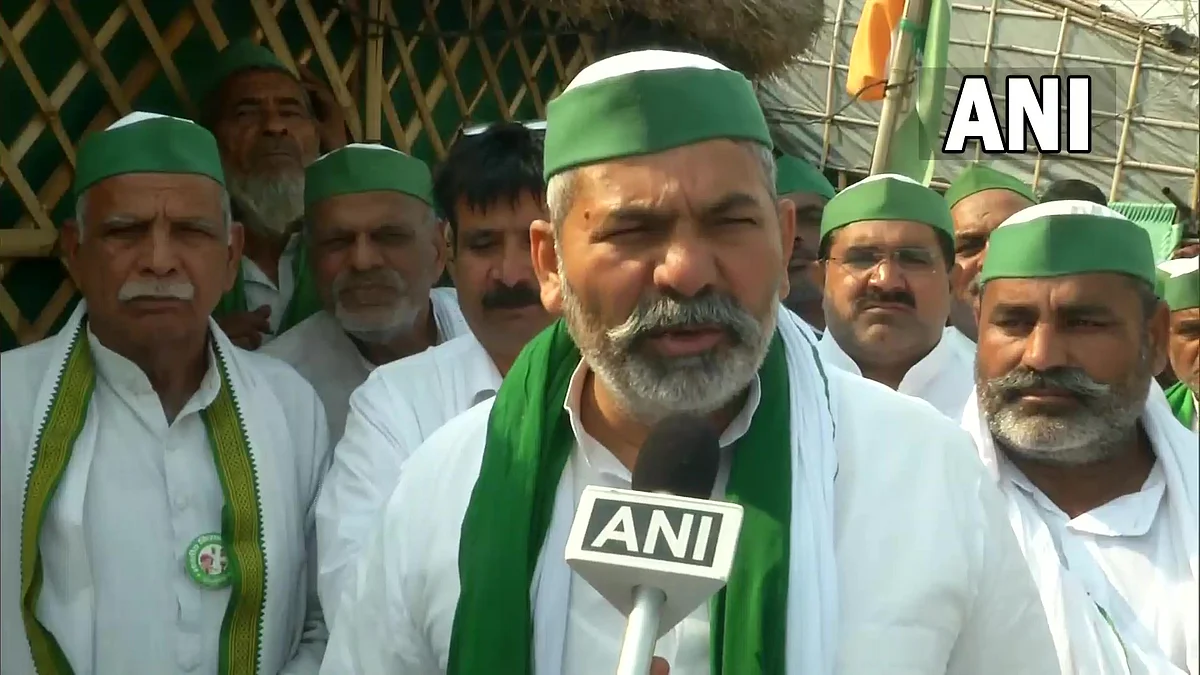Delhi HC seeks CBI's reply on bail plea of Anil Deshmukh's lawyer in corruption case | PTI
Maharashtra's former home minister Anil Deshmukh has finally reached the Enforcement Directorate office. The ED is probing a money laundering case involving Deshmukh.
The minister has also released a video and wrote, "Although the High Court has given me the freedom to go to the special court in my constitutional right, I will go to the ED's office today and co-operate fully for the inquiry."
Watch the video:
मा. उच्च न्यायालय ने मेरे संवैधानिक अधिकार के अनुसार मुझे विशेष न्यायालय में जाने की स्वतंत्रता दी है लेकिन मैं फिर भी आज ईडी के कार्यालय जाऊंगा और जांच में पूरा सहयोग करूंगा. pic.twitter.com/fGYJ622T6s
— ANIL DESHMUKH (@AnilDeshmukhNCP) November 1, 2021
Deshmukh had earlier failed to appear before the ED despite 5 summons being served to him in connection with a money-laundering probe against him. In September, the ED had moved an application to the CMM court against Deshmukh for non-compliance to ED summons under section 174 of IPC.
The Enforcement Directorate is conducting a probe into the alleged Rs 100-crore bribery-cum-extortion racket in the Maharashtra police establishment that led to Deshmukh's resignation from the state cabinet in April this year.
The ED's case against Deshmukh, an NCP leader, and others came after the Central Bureau of Investigation (CBI) booked him in a corruption case related to allegations of at least Rs 100 crore bribe levelled by former Mumbai police commissioner Param Bir Singh.
Deshmukh, who has skipped the ED summons at least five times till now and had moved court against the agency, had rejected all allegations against him.
The NCP politician had said Singh made the allegations against him after he was removed from the post of Mumbai police commissioner in March this year.
Bombay High Court on Anil Deshmukh's plea
In a setback to former minister Anil Deshmukh, the Bombay High Court has rejected his plea observing that “issuance of summons was a part of the investigation” and that the NCP leader has “without any valid reason, refused to cooperate with the investigation by not attending the summons” in the alleged money laundering case.
A division bench of Justices Nitin Jamdar and Sarang Kotwal, on Friday, rejected the petition saying that Deshmukh had “failed to make out a case to quash the summons” issued by the Enforcement Directorate (ED). Deshmukh had also sought that the investigating agency be directed not to take coercive action against him. The ED has issued five summons which the former minister has skipped. Expressing displeasure on the former minister’s conduct, HC said, “There is no jurisdictional error in the issuance of summonses as they have been issued by the officers duly authorised under the PMLA.”
The judges observed: “To conclude, the applicant has failed to make out a case under section 482 CrPC and for no coercive action against the applicant. Like any other person apprehending arrest, he shall approach the competent court under section 438 of CrPC (Criminal Procedure Code) to be decided on its own merits.”
Under the CrPC, the appropriate court can direct that in the event of such arrest, the applicant shall be released on bail.
Rejecting Deshmukh’s prayer for appearing through videoconferencing, the HC said it would be the discretion of the ED “as to the mode of questioning, and no case is made out that it is abused”. The court has also rejected the prayer of transferring the probe to a special investigating team, observing that Deshmukh has “failed to establish factual or legal malice in the investigation carried out by the ED”.
The HC has, however, partially allowed Deshmukh’s lawyer to remain present during interrogation. “Applicant’s lawyer can remain present at a visible distance but beyond audible range (during questioning),” said the HC. The ED had opposed this prayer sought by Deshmukh.
Dismissing the ED’s arguments, the HC observed that this would not interfere with the investigation and that there was no “specific reason why Deshmukh should not be made entitled to this direction”.
The judges observed that the HC “would not interfere and interdict a lawful investigation unless there were exceptional circumstances”. Besides, the investigating agency not only had the authority to investigate the offence of money laundering but also “had a duty to investigate it in the larger public interest”.
(With inputs from FPJ's Urvi Mahajani)
(To receive our E-paper on whatsapp daily, please click here. We permit sharing of the paper's PDF on WhatsApp and other social media platforms.)

 CBI, I-T, ED, NIA and NCB - From roles to formation, know all about Central agencies amid recent...
CBI, I-T, ED, NIA and NCB - From roles to formation, know all about Central agencies amid recent...  Mumbai: Former Maharashtra home minister Anil Deshmukh reaches ED office after Bombay HC refused to...
Mumbai: Former Maharashtra home minister Anil Deshmukh reaches ED office after Bombay HC refused to...  Mumbai: Latest updates -
Mumbai: Latest updates -  Govt has time till November 26 or farmers will intensify protest at Delhi borders: Rakesh Tikait to...
Govt has time till November 26 or farmers will intensify protest at Delhi borders: Rakesh Tikait to...  'It's raining boycotts': Celebrations and disappointment flood Twitter as Sabyasachi withdraws...
'It's raining boycotts': Celebrations and disappointment flood Twitter as Sabyasachi withdraws...  'Miss you, Dhoni': As India stares at exit after being beaten by New Zealand, netizens miss former...
'Miss you, Dhoni': As India stares at exit after being beaten by New Zealand, netizens miss former...